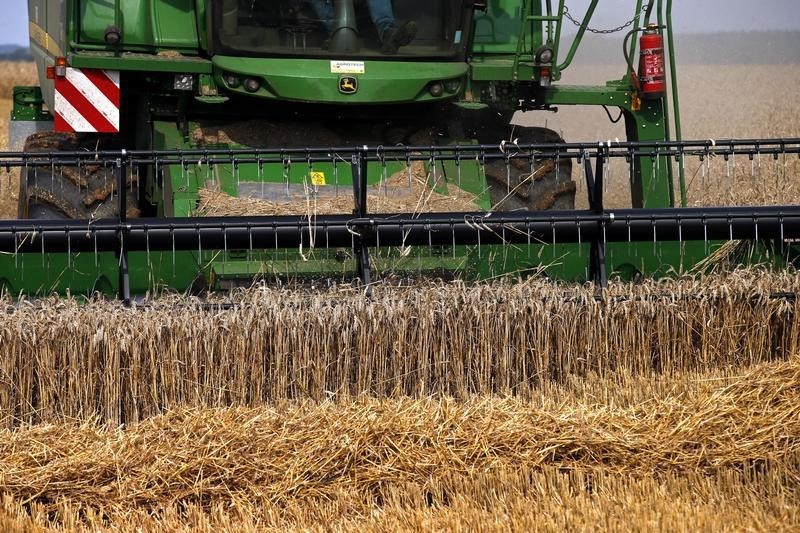(Bloomberg) -- The Wheat market is starting to get shaken up by the coronavirus pandemic.
Panic buying of food might have largely eased at grocery stores, but governments are beginning to get more serious about securing supplies of key staples like grains. From export restrictions to plans to hoard more, there are signs that typical trade routes are being affected as this season nears an end.
Shipment limits across the key Black Sea region are already having knock-on effects, with cargoes being held up and offers dwindling in the latest tender by Egypt, the biggest buyer. Russia also risks having to share the crown as the world’s top exporter. Plus, the challenges are happening as a threat looms from an enduring wildcard at this time of year: the weather.
The market can’t afford any weather-related “major accident” for production in the coming season since exporters’ stockpiles are already declining, said Benjamin Bodart, a director at CRM AgriCommodities.
Here’s a breakdown of some key factors for the wheat market:
Romanian Ban
The European Union’s No. 2 wheat exporter became the first major shipper to formally halt exports last week when it banned sales outside the bloc. While Romania has already sold most of its wheat this season, the ban “stranded” some vessels at the nation’s Constanta port and snarled truck traffic, lobby group Coceral said.
The European Commission objected to the move, saying that there aren’t any signs of food shortages in Romania that warrant limiting trade. The restrictions may help support wheat prices in other suppliers, consultant UkrAgroConsult said. Romania’s agriculture minister on Wednesday said the government is monitoring domestic supply and could either extend the export ban or ease it.
Other Black Sea Limits
Russia, Ukraine and Kazakhstan have also put limits on agricultural trade. Though the restrictions are seen loose enough to keep grain flowing, the U.S. government last week cut its outlook for Russian exports to the same level as the EU. That would strip Russia of holding the top ranking alone for the first time since 2016-17.
Russia has already shipped out about a fifth of its 7 million-ton grain quota for the three months through June. Though Russia’s limit will end before the next harvest, Kazakhstan recently extended its export quota on wheat, flour and other staples until September.
Boosting Imports
There may be no grain shortages yet, but some importers are taking extra and unusual precautions just in case. Egypt plans to buy 800,000 tons of overseas wheat in the next few months, a time it usually focuses on purchasing grain from its own harvest. That may prove challenging, as its tender on Tuesday drew the fewest companies offering in a year.
Lebanon is considering its first wheat imports since 2014, and Saudi Arabia issued a wheat tender for supplies from domestic companies with overseas agricultural investments. Also, Jordan is working to expand its grain storage capacity.
Weather Risk
The supply-chain issues are happening against the usual swing factor at this time of year -- the weather. Many top shippers are in the Northern Hemisphere, making April the start of a key period for crop conditions. Dryness in Russia is raising worries about damage to what could be one of the nation’s biggest-ever crops, and much of Europe has seen a dry spring after an overly-wet winter.
That poses a risk that supply challenges may drag into the 2020-21 season. Though the International Grains Council has forecast global wheat reserves to swell next season, it warned that stockpiles across top exporters may decline.
“The current crop year is drawing to a close and exports have already been completed for the most part,” Commerzbank (DE:CBKG) analyst Carsten Fritsch said in a report. “However, there are signs that the new crop will also experience problems."
